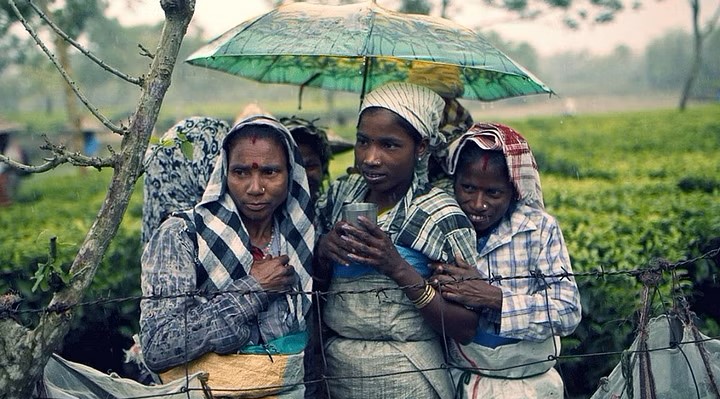Book available on Amazon: Link ……..https://amzn.in/d/2bUvej0
The Scheduled Castes and Schedule Tribes (Prevention of Atrocities) Act, 1989
The Scheduled Castes and Schedule Tribes (Prevention of Atrocities) Act, 1989 is a legislation enacted by the Indian government to prevent and protect members of the Scheduled Castes (SCs) and Scheduled Tribes (STs) from acts of violence, discrimination, and exploitation. The act, also known as the Prevention of Atrocities Act or POA, is aimed at ensuring the safety and dignity of SCs and STs, who have historically faced discrimination and abuse in Indian society.
SOCIAL ASPECT LAWS
Raj K.
2/9/20232 min read


The Scheduled Castes and Schedule Tribes (Prevention of Atrocities) Act, 1989 is a legislation enacted by the Indian government to prevent and protect members of the Scheduled Castes (SCs) and Scheduled Tribes (STs) from acts of violence, discrimination, and exploitation. The act, also known as the Prevention of Atrocities Act or POA, is aimed at ensuring the safety and dignity of SCs and STs, who have historically faced discrimination and abuse in Indian society.
The act was enacted in response to the persistent and widespread violations of the human rights of SCs and STs, including physical, sexual, and economic exploitation, and the denial of their basic rights to education, employment, and property. The act provides for various legal remedies to victims of atrocities, including the power to provide compensation to victims and their families, as well as the establishment of special courts to hear cases under the act.
The act defines the term “atrocity” to include a wide range of acts of violence, abuse, and discrimination against SCs and STs. Some of the most serious offenses covered under the act include:
Denial of access to water, forest, and other resources
Economic exploitation and abuse
Displacement from homes and land
Discriminatory practices, such as untouchability
Disrespect to memorials and places of worship
Offenses related to land, property, and resources
Abuses related to social and cultural practices
The act also provides for the appointment of special public prosecutors, who are authorized to prosecute cases under the act, and the creation of special courts to hear cases under the act. The special courts are empowered to grant compensation to victims, and to take action against those who have committed atrocities against SCs and STs. The act also requires the government to take steps to prevent the commission of atrocities, including the appointment of special police officers, the creation of special cells within the police force, and the establishment of rehabilitation and resettlement schemes for victims.
The act has been amended several times to strengthen its provisions and enhance its effectiveness. In 2015, the act was amended to include new provisions, such as the inclusion of provisions relating to the prevention of trafficking, the prevention of abuse of women and children, and the strengthening of provisions relating to the protection of witnesses and victims.
Despite the provisions of the act, the implementation of the law remains a major challenge, with widespread violations of the rights of SCs and STs continuing to occur. The act is often criticized for its limited impact on the ground, with cases of atrocities against SCs and STs continuing to be reported with alarming frequency. This has led to calls for stronger enforcement mechanisms, including the appointment of more special public prosecutors and the creation of more special courts, as well as the strengthening of the provisions of the act to provide greater protection to SCs and STs.
In conclusion, The Scheduled Castes and Schedule Tribes (Prevention of Atrocities) Act, 1989 is an important piece of legislation aimed at protecting the rights of SCs and STs and ensuring their safety and dignity. Despite its limitations, the act provides an important framework for the protection of the rights of SCs and STs and for the prosecution of those who have committed atrocities against them. The act must be strengthened and effectively implemented to ensure that SCs and STs are able to enjoy their rights and live free from violence, discrimination, and exploitation.
North India - Delhi NCR
UTTAR PRADESH : B-122, Sector-Omicron-1A, Greater Noida, Gautam Budh Nagar, Uttar Pradesh, India - 201310
Hours
I-V 9:00-18:00
VI - VII Closed


Copyright
We have @SarvePermits & Legal Advisory Pvt Ltd's original, exclusive and copyright protected content for you. Don't miss out on the opportunity and get access to our informative content today! #CopyrightProtected #OriginalContent #SarvePermitsAndLegal. If you have any questions about using our content, please contact us for permission. #copyright #protectourproperty #IP #SarvePermitsAndLegalAdvisoryPrivateLimited.
Western India - Maharashtra
MUMBAI : Office No.- 1408, Ghanshyam Enclave, Opp. Lalji Pada Police Station, Link Road, Kandivali West, Mumbai
South India - Karnataka
BANGALORE : B-2, Ground Floor, Museum Terrace, 29 Museum Road, Bangalore-560001
RESIDENCE : 50808, Tower 5, Bhartiya City Nikoo Homes 1, Thanisandra Road, Kannur, Bangalore - 560064
Eastern India - Jharkhand
BOKARO : 689, Sector-1/C, Bokaro Steel City, Dist.- Bokaro, Jharkhand -827001
